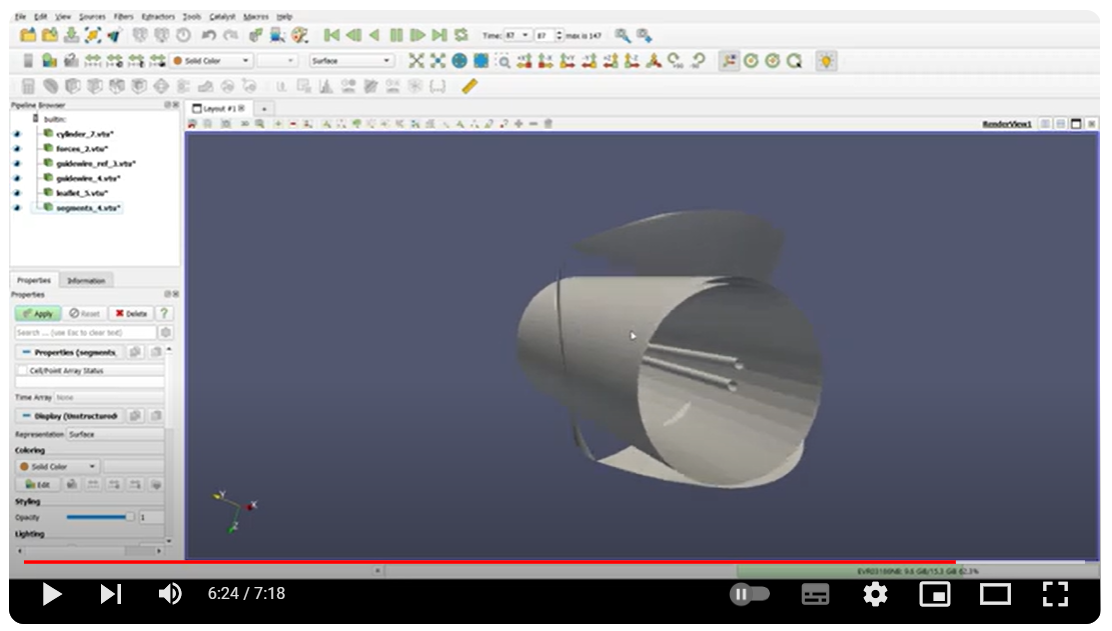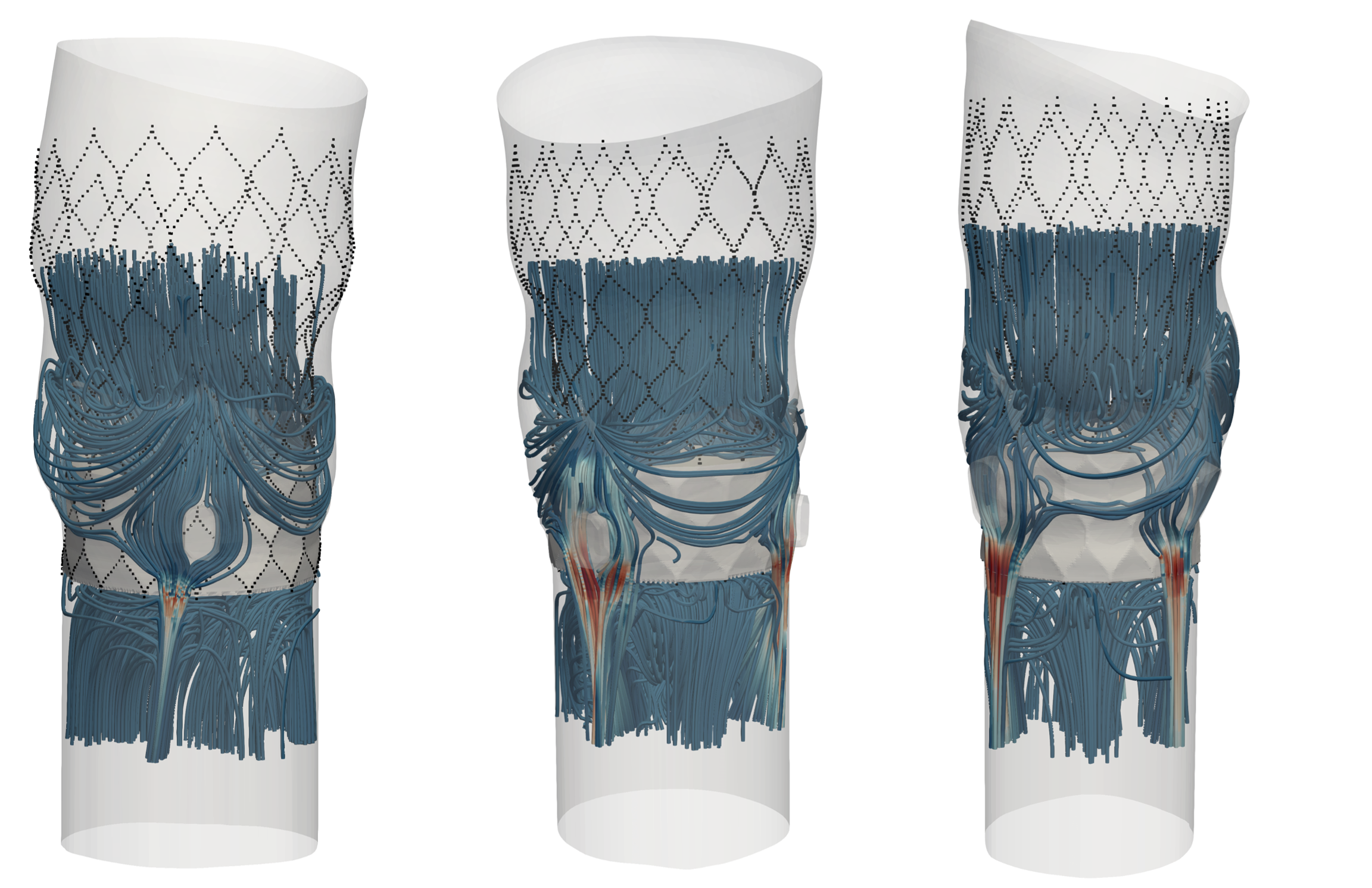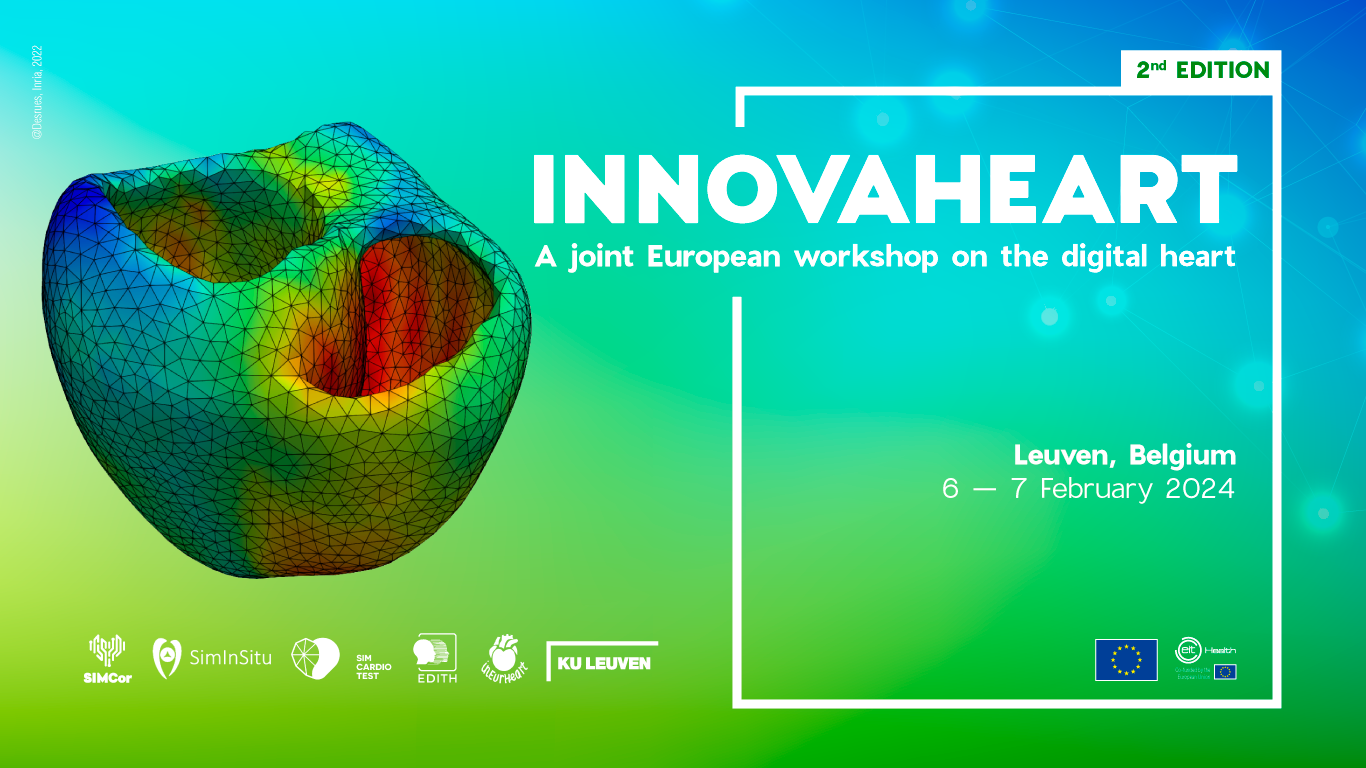On 31 December 2023, SIMCor will conclude its 3rd year of implementation and its Second Reporting Period, leading to the Second Periodic Review with the European Commission (EC) on 28 February 2024. The project, which was initially meant to conclude by December 2023, has now been granted an extension by the EC and will thus end on 30 June 2024.
As discussed during our latest M36 consortium meeting in Vienna, the consortium has now achieved most of its technical results, which are meant to be updated and refined in the last 6 months of the project, and constitute the basis of the impact assessment of in-silico testing methodologies at healthcare and socioeconomic level.
First, the SIMCor Virtual Research Environment (VRE) developed by the Universitatea Transilvania Din Brasov (UTBV) has been finalised with its web-based interface and the integration of its 3 domains, (1) the VRE Drive (i.e., the project repository for data, virtual cohorts, models and standard operating procedures (SOPs)), (2) the Virtual Cohort Generator (VCG) for developing and validating synthetic cohorts of cardiologic patients by the Eindhoven University of Technology (TUE), and the (3) R-Statistical Environment for conducting in-silico trials, designed by the European Clinical Research Infrastructure Network (ECRIN). Here, the synthetic geometries and boundary conditions generated by the University College London (UCL) and Charité – Universitätsmedizin Berlin (CHA) have been completed and uploaded into the platform, together with the first synthetic cohorts of aortic stenosis and heart failure patients developed by TUE and CHA. For this, see also the public deliverable D7.8 – Validated virtual cohorts for in-silico trials (TUE, M36). A first set of candidate in-silico trials to validate our approach, to be conducted in 2024, has been jointly defined by the consortium and selected by ECRIN.

On the simulation and modelling side, Biotronik (BIO), the Institute for Implantable Technologies and Biomaterials (IIB) and CHA are finalising their report on the high-fidelity validation of selected endpoints for safety, efficacy and durability testing of its target use-cases devices, the transcatheter aortic valve implant (TAVI) and the pulmonary artery pressure sensor (PAPS), through animal experiments and in-silico testing. Also, BIO is about to complete its mock submission to the US Food and Drug Administration (FDA) for the PAPS device, which has been evaluated via animal trials and in-silico testing.
Based on the procedures and results above, the Virtual Physiological Human Institute (VPHi), TUE and BIO are also about to deliver their SOPs on virtual cohorts generation and validation and validation of in-silico models, to be incorporated as part of the public deliverables D4.3 and D4.6, respectively. While the former SOP is a rather new procedure, mostly based on our work on WP7 – Virtual cohort generation and validation, the latter will take base from the current V&V 40 – Assessing Credibility of Computational Modeling through Verification and Validation: Application to Medical Devices guideline by the American Society of Mechanical Engineers (ASME) and customise it to our use cases, with relevant examples from PAPS and TAVI.

As far as the healthcare and socioeconomic impact assessment is concerned, besides the definition of candidate in-silico trials for for healthcare assessment by ECRIN, the Institute for Advanced Studies (IHS) is conducting a wide range of interviews to academic, industry and regulatory body representatives across Europe and beyond, as well as planning the second focus group with cardiology patients in Vienna, to inform and further refine its impact assessment framework, to be applied in 2024.
Together with its large scientific dissemination activity, which has now summed up to 13 published journal articles, 11 conference papers and over 20 talks and relevant conferences and workshops, the consortium is also organising the 2nd edition InnovaHeart, the European workshop on the digital heart, which will constitute its final dissemination event. InnovaHeart 2024, to be hosted in Leuven, Belgium on 6-7 February 2024, represents a joint effort of the SIMCor, SimInSitu, SimCardioTest Horizon 2020 Research and Innovation Actions, as part of the SC1-DTH-06-2020 (Accelerating the uptake of computer simulations for testing medicines and medical devices) Topic, the EDITH Horizon Europe Coordination and Support Action, and the inEurHeart EIT Health innovation project. The workshop, kindly hosted by the KU Leuven, aims to gather cardiovascular modelling experts from academia, industry, regulatory and notified bodies to discuss advancements, challenges, and outstanding issues in the field of in-silico modelling in cardiovascular medicine, and in particular the remaining challenges for the successful translation of in-silico models into clinical application, through keynote talks and open working groups. Registration to the workshop is already open at www.innovaheart.info.

After the completion of its M36 deliverables and milestones, as mentioned above, the consortium is looking ahead to its last 6 months of implementation (January – June 2024), where it will consolidate and further refine its virtual cohort generation and validation and in-silico testing methodologies, and based on that refine and publish its SOP collection, conduct its healthcare and socioeconomic impact assessment, and ultimate its dissemination and exploitation of results, including the final SIMCor principle paper, together with the other projects of the SC1-DTH-06-2020 cluster.